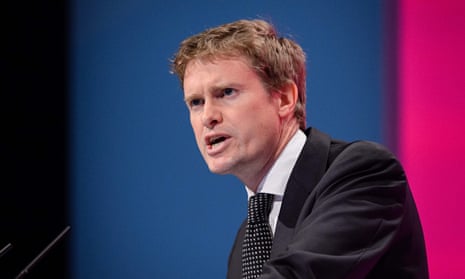Tristram Hunt embarrassed himself when he called the prime minister a “low-rent PR man” (“What else to expect from a low-rent PR man?”, Comment, last week).
While we have no interest in involving ourselves in political rows, and while we accept the hyperbole that comes with them, we would, as the representative and regulatory body for public relations, urge Mr Hunt to desist from using such pejorative language about our industry. Public relations is an economic success story for the UK and an industry that politicians should celebrate rather than denigrate.
It employs 62,000 people; it contributes £9.62bn to the UK economy; the average salary is £54,000; over the past two years it has grown by 28%; it employs a vast number of young people, with 10% of our industry aged 18-24; our commitment to equality and talent means 63% of our industry are women. Via us, the industry runs a highly successful and vibrant PR apprenticeship programme.
Using our industry as some sort of insult flies in the face of this social mobility and is not what young people – hoping to enter our industry – should hear.
Francis Ingham
Director general of the Public Relations Consultants Association
London SE1
Don’t blame China on Hong Kong
Anson Chan’s article (“Betrayed by China. And abandoned now by the British”, Comment, last week) contains a number of inaccuracies.
Mrs Chan says Beijing has not honoured its promise for a genuine one-person, one-vote election for the chief executive in 2017. She should know that the Sino-British joint declaration signed in 1984 did not mention the election of the chief executive by universal suffrage. Only the Basic Law – a national law of China and a Hong Kong law promulgated in 1990 – states the ultimate aim of electing the CE by universal suffrage upon nomination by a broadly representative nominating committee. Nearly every CE and legislative council election since 1997 has been more democratic than the previous one – and certainly much more representative than anything we had during 155 years of British administration. China has faithfully implemented it Basic Law commitment for gradual and orderly progress.
Whatever the election method, nobody in Hong Kong, or abroad for that matter, can ignore Beijing’s constitutional authority in this regard.
There is a good reason for this. Hong Kong is not an ordinary local democracy. The CE enjoys a far higher level of institutional power than the mayors of western democracies, including London. These extra powers come from Beijing and are stipulated in the Basic Law, which states that the CE is accountable to both Beijing and the people of Hong Kong.
Mrs Chan claims we carried out a sham consultation on electoral reform and that the report to the Chinese leadership misrepresents the sentiments of Hong Kong people. Beijing officials are very well informed about the wide variety of views in Hong Kong. Following several meetings with Beijing officials, none of the pan-democrat legislators have mentioned that Beijing has been misled by the HKSAR government.
CY Leung
Chief Executive, Hong Kong Special Administrative Region
Government House
Hong Kong
Going Dutch on housing
Your welcome editorial calling for radical changes in how we build new housing referred to Dutch experience, but without bringing out the real lessons (“Only audacious measures can solve our broken housing market”, Observer Comment, last week). Through the Vinex 10-year housing programme, the Dutch increased their housing stock by 7.6%. More than 100 extensions were built to towns and cities with a population of more than 100,000. To qualify, they had to be well connected by public transport and provide 30% affordable housing.
Their success was due to more proactive local authorities, often setting up joint ventures with private landowners and developers, as in the case of Vathorst, outside Amersfoort. These were able to borrow from the municipal investment bank BNG to install the infrastructure needed to dispose of serviced sites to a wide range of housebuilders. Housing associations account for around half the new housing.
Dr Nicholas Falk
Director, London Office, Urbed (Urbanism Environment Design)
London WC1
Why must Brits belittle Boney?
I notice that in his review of Andrew Roberts’s biography of Napoleon (New Review, last week), Andrew Hussey repeats the usual myth about the “pocket-size emperor” with the obligatory reference to Sarkozy. In fact, at around 5ft 6ins, Napoleon was about average height for his times, taller than Lord Nelson and probably not a great deal shorter than the Duke of Wellington, about whose height there is some dispute. Turn the clock forward over a century and we find that Winston Churchill, one of Napoleon’s greatest admirers, was also around 5ft 6ins, rather short for a man of his class. It is curious that neither Nelson nor Churchill are ever singled out for their stature, while Napoleon and Sarkozy are. I am sure it has nothing to do with the fact that the latter are French.
John Tyrrell
Withington
Manchester
